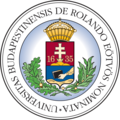Dániel Virosztek:
Selected topics in quantum optimal transport
Although the theory of classical optimal transport has been playing an important role in mathematical physics (especially in fluid dynamics) and probability since the late 80s, concepts of optimal transportation in quantum mechanics have emerged only very recently. It is a general phenomenon that concepts and notions well-established in the classical commutative world do not have a unique best extension in the non-commutative world, but there are many possible ways of generalization with pros and cons. This is the case concerning optimal transportation as well: non-commutative optimal transport is a flourishing research field these days with several different approaches.
During this lecture series, we will restrict our attention to two concepts of mass transportation in quantum mechanics: one relying on quantum channels (pioneered by De Palma and Trevisan) and one relying on quantum couplings (pioneered by Caglioti, Golse, Mouhot, and Paul). We will discuss fundamental results like the quantum Kantorovich duality and surprising phenomena like “quantum optimal transport is cheaper”. Then, we turn to the metric side of the theory. A common feature of the quantum optimal transport concepts above is that the induced quantum Wasserstein distances are not genuine metrics. In particular, a state may have a positive distance from itself. We will highlight the physical reasons for this phenomenon from Heisenberg's uncertainty relation to the connection of the self-distance with the Wigner–Yanase skew information. Finally, we will review the positive results regarding the metric properties of (natural variants of) the aforementioned quantum Wasserstein distances.
